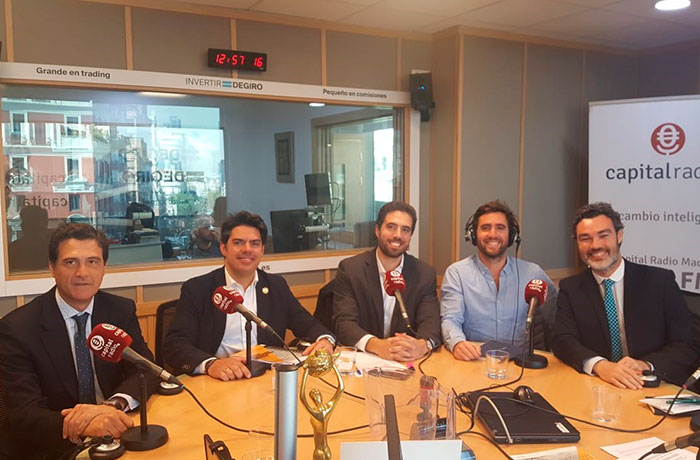Innovation debate: Vía Célere collaborates in raising awareness in Spain about the development of more sustainable cities, thanks to its Cérere Cities project.
In December 2016, the world leaders adopted the New Urban Agenda, a global standard for the sustainable urban development of cities that joins the Sustainable Development Goals, a common global agenda, which includes, among other challenges for society as a whole, creating more sustainable cities, promoting innovation in industrial sectors and fighting against climate change.
3.5 billion people, half of humanity, currently live in cities and this is expected to increase to 5,000 million by the year 2030. In Spain, more than 80% of the population currently lives in urban centres. Thousands of people choose large cities to live and make a home, but progress brings problems that threaten the sustainability of our urban environments, a problem that was discussed last week in Innovation Debate with great professionals in the sector.
The participants included: Carlos Valdés Sauras, Head of CSR at Vía Célere and the Vía Célere Foundation; Fidel Rodríguez, Directorate General of the Autonomous University of Madrid Foundation; Tito Espinola, Project Manager, Ashoka; Sergio Colas, Building Technician at Vía Célere and Pascual Fernández, Dean-President of Madrid College of Economists and Associate Professor of the UAM.
They all agreed that Spain is making progress in the creation of sustainable cities. “This is already a fact. Firstly, because the regulations require you to be more sustainable and this will only increase, and secondly, because all the agents that make up the cities are moving towards a better city”, said Carlos Valdés Sauras, Head of CSR at Vía Célere and the Vía Célere Foundation.
Via Célere, has just launched the Célere Cities project, with a vision of the future of cities, which is more respectful of the social surroundings and the environment, from which they have collaborated with other groups to advance together in a more sustainable building model. As a result of these agreements, Vía Célere and UAM have created the Observatory for Environmental Sustainability of Residential Construction, for which the first project is a pioneering study measuring the water footprint of the construction of residential developments in Spain.
“Sustainability has become a key skills qualification. It is a skill that any University in the world must must offer as it does with other values in ethics, innovation…”, said Fidel Rodríguez, Directorate General of the Autonomous University of Madrid Foundation
In collaboration with the Autonomous University of Madrid Foundation, dedicated to the transfer of knowledge and innovation, Via Célere has presented the first specific study of the water footprint (WF) or indicator of water use linked to the construction stage of Residential developments in our country.
“When a company considers reducing its environmental impact it has a whole range of indexes and not all of them work together in the same direction. You can identify a product that reduces your water footprint but maybe it increases your carbon footprint”, said Pascual Fernández, Dean-President of Madrid School of Economists
Also through the Future Cities project, Via Célere and Ashoka seek to empower the role of citizens and young people in solving these social challenges in cities.
“We are creating sustainable cities and we are not only in the process but we are already seeing the results. The cities are pushing politicians and businessmen to make decisions and proof of this is the implementation of the mobility plan being carried out in Madrid”, explained Tito Spinola, Head of Projects, Ashoka.
As a conclusion to the debate, Sergio Colas, Building Technician at Vía Célere, alumnus of UPM-ASPRIMA real estate development, stated “to create sustainable cities, the Administration is carrying out policies that aim to advance towards sustainability, and cities like Bilbao or Madrid are demonstrating this”.


